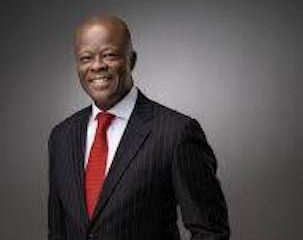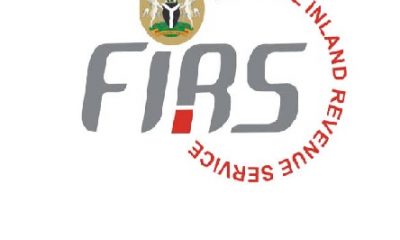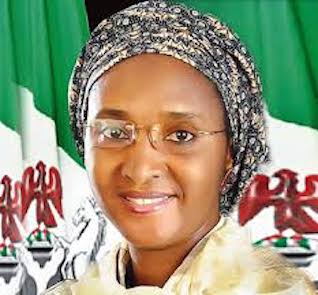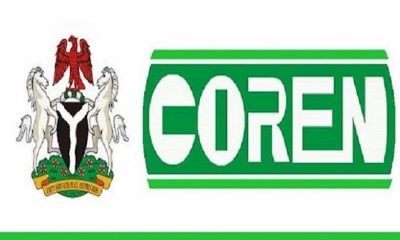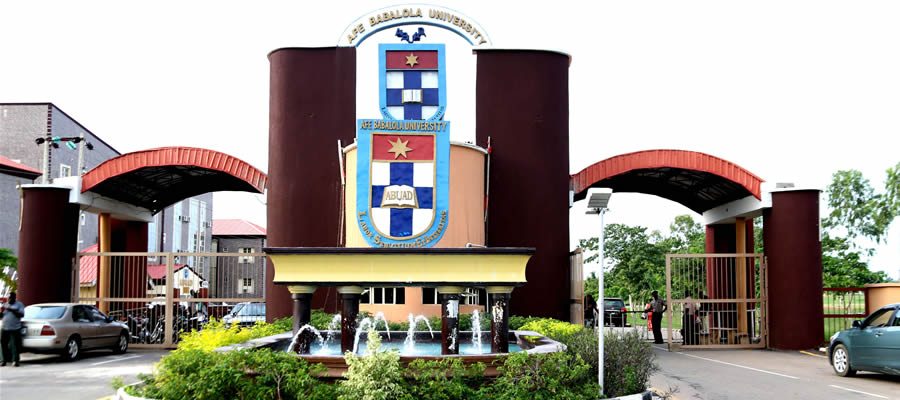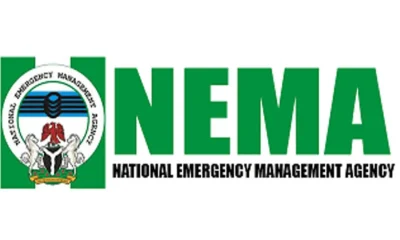Business News
Stakeholders Seek Harmonisation of Taxes to Avoid Duplicity
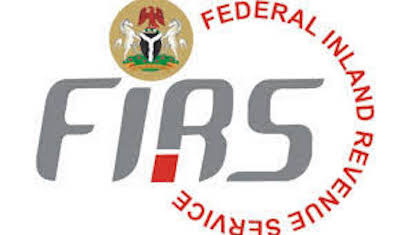
Stakeholders in the public and private sectors, academia, civil
society groups and the media have called for the harmonisation of all
tax laws in the Federation.
They believe this would allow for a more innovative way of taxation
that will avoid duplicity and multiplicity in collection of taxes
across the three tiers of government in the country.
The call is contained in a communique issued at the end of a one-day
dialogue on Fiscal Governance and Economic Resilience in Nigeria.
The dialogue was organised by the Partnership to Engage, Reform and
Learn-(PERL), a UK Foreign, Commonwealth and Development Office
(FCDO)-funded governance programme in Nigeria.
They suggested that the Centralization of the entire database linked
to the National Identity Numbers of citizen on taxation will be
domiciled with the tax authority.
The stakeholders believe this would allow government have real time
intelligence on the economic status of citizens and for planning
purposes.
The stakeholders also said that the need to reinvent Nigeria’s fiscal
governance will require complementary reforms to strengthen
formulation and execution of the budget.
They said, `The use of consultants in the tax regime which is
detrimental to national revenue drive, and so there is need to
institute a vibrant revenue generation drive by public institutions
instead of using consultants, saying there is the need for synergy and
coordination among government agencies in fiscal governance in the
implementation of the major frameworks.
According to them, “Innovative fiscal policies administration is
required in tackling under-performing or performing revenue generation mechanism of the agencies at both national and sub-national levels.
This is key in effective fiscal governance in Nigeria.”
They added that a public financial management reforms that would have a greater impact on transparency and accountability would be needed.
They further said that there is the need for an integrated revenue
architecture at the national and subnational levels working
independently to enhance revenue drive in the robust fiscal governance
of Nigeria.
The role and absolute independence of Legislative Oversight, Public
Account Committee (PAC) and the Auditor General of the Federation, is
sacrosanct in effective fiscal governance in Nigeria.
The stakeholders stated that there was also the need for urgent
legislation to guarantee the independence of Auditor General of the
Federation to enhance efficiency, transparency and accountability at
all levels of governments.
They noted that capacity building among public officials in the
preparation and implementation of fiscal governance strategic
frameworks, especially at the sub-national level is important to
re-energize the fiscal governance in Nigeria.
“The adoption of bottom-up approach, instead of the current top-down
method in the preparation of the budget/MTEF should be encouraged, as that will not only enhance citizen’s engagement but also serve as
enlightenment on the expected role of government to the citizens.
“Services that are meant for the states should be removed from
Exclusive Legislative List to the Concurrent Legislative List for the
purposes of a harmonious tax regime between the national and
sub-national levels of government.
They suggested the need for a strong fiscal governance system that
requires strong fiscal rules and institutions, supported by measures
that will strengthen the quality of spending in order to address
corruption, transparency and accountability.’’
The stakeholders further said key sectors, such as agriculture,
information and communication technology, construction and
transportation being the main drivers that facilitated the nation’s
recovery from recessions, require more investments that will transform
economy.
“And put in place a mechanism for the generation of data and evidence
to support fiscal policy reforms that will improve government revenue
and expenditure systems; as well as enthrone measures to maintain
micro-economic stability such as reducing inflation, implementation of
foreign exchange management system.”
The stakeholders noted that the system will improve inflow of Foreign
Direct Investment, thereby address the issue of funding government
projects budgets; putting public service delivery at the centre of
public finance management.
They said that the aim of the event is to provide a platform for
leaders to brainstorm on the many contending issues of fiscal
governance and to recommend actionable policy options for policy
makers and practitioners.
It was also to initiate a public discourse around fiscal federalism
and economic resilience among the citizenry to influence policy
decisions within government at the national and sub-national levels.
(NAN)
Business News
Tinubu Congratulates Dangote on World Bank Appointment

By Jennifer Enuma, Abuja
President Bola Tinubu has congratulated Alhaji Aliko Dangote, the President of Dangote Group, on his appointment to the World Bank’s Private Sector Investment Lab, a body tasked with promoting investment and job creation in emerging economies.
In a statement by Special Adviser on Media and Publicity, Bayo Onanauga, the President described the appointment as apt, given Dangote’s rich private sector experience, strategic investments, and many employment opportunities created through his Dangote Group.
The Dangote Group became one of Africa’s leading conglomerates through innovation and continuous investment.
Dangote Group’s business interests span cement, fertiliser, salt, sugar, oil, and gas. However, the $20 billion Dangote Petroleum Refinery and Petrochemicals remains Africa’s most daring project and most significant single private investment.
“President Tinubu urges Dangote to bring to bear on the World Bank appointment his transformative ideas and initiatives to impact the emerging markets across the world fully” the statement said.

The World Bank announced Dangote’s appointment on Wednesday, as part of a broader expansion of its Private Sector Investment Lab. The lab now enters a new phase aimed at scaling up solutions to attract private capital and create jobs in the developing world.
The CEO of Bayer AG, Bill Anderson, the Chair of Bharti Enterprises, Sunil Bharti Mittal, and the President and CEO of Hyatt Hotels Corporation, Mark Hoplamazian, are on the Private Sector Investment Lab with Dangote.
The World Bank said the expanded membership brings together business leaders with proven track records in generating employment in developing economies, supporting the Bank’s focus on job creation as a central pillar of global development.
Business Analysis
Nigeria Customs Generates over N1.75trn Revenue in 2025
By Joel Oladele, Abuja
The Nigeria Customs Service (NSC) has generated an impressive N1,751,502,252,298.05 in revenue during the first quarter of 2025.
The Comptroller-General (CG) of the Service, Bashir Adeniyi, disclosed this yesterday, during a press briefing in Abuja.
According to Adeniyi, the achievement not only surpasses the quarterly target but also marks a substantial increase compared to the same period last year, reflecting the effectiveness of recent reforms and the dedication of customs officers across the nation.
“This first quarter of 2025 has seen our officers working tirelessly at borders and ports across the nation.
I’m proud to report we’ve made real progress on multiple fronts—from increasing revenue collections to intercepting dangerous shipments,” Adeniyi stated.He attributed this success to the reforms initiated under President Bola Tinubu’s administration and the guidance of the Honourable Minister of Finance and Coordinating Minister of the Economy, Olawale Edun.
The CG noted that the revenue collection for Q1 2025 exceeded the quarterly benchmark of N1,645,000,000,000.00 by N106.5 billion, achieving 106.47% of the target. This performance represents a remarkable 29.96% increase compared to the N1,347,705,251,658.31 collected in Q1 2024.
Adeniyi highlighted the month-by-month growth, noting that January’s collection of N647,880,245,243.67 surpassed its target by 18.12%, while February and March also showed positive trends.
“I’m pleased to report the Service’s revenue collection for Q1 2025 totaled N1,751,502,252,298.05.
“Against our annual target of N6,580,000,000,000.00, the first quarter’s proportional benchmark stood at N1,645,000,000,000.00. I’m proud to announce we’ve exceeded this target by N106.5 billion, achieving 106.47% of our quarterly projection. This outstanding performance represents a substantial 29.96% increase compared to the same period in 2024, where we collected N1,347,705,251,658.31.
“Our month-by-month analysis reveals even more encouraging details of this growth trajectory,” Adeniyi said.
In addition to revenue collection, Adeniyi said the NCS maintained robust anti-smuggling operations, recording 298 seizures with a total Duty Paid Value (DPV) of ₦7,698,557,347.67.
He stated that rice was the most seized commodity, with 135,474 bags intercepted, followed by petroleum products and narcotics.
“From rice to wildlife, these seizures show our targeted approach,” Adeniyi remarked, noting the NCS’s commitment to combating smuggling and protecting national revenue.
Adeniyi also highlighted key initiatives, including the expansion of the B’Odogwu customs clearance platform and the launch of the Authorized Economic Operators Programme, which aims to streamline processes for compliant businesses. The NCS’s Corporate Social Responsibility Programme, “Customs Cares,” was also launched, focusing on education, health, and environmental sustainability.
Despite these achievements, the CG noted that the NCS faced challenges, including exchange rate volatility and non-compliance issues. Adeniyi acknowledged the need for ongoing adaptation and collaboration with stakeholders to address these challenges effectively.
Looking ahead, the NCS aims to continue its modernization efforts and enhance service delivery, ensuring that it remains a critical institution in Nigeria’s economic and security landscape.
“Results speak louder than plans; faster clearances through B’Odogwu, trusted traders in the AEO program, and measurable food price relief from our exemptions. We’ll keep scaling what works,” he concluded.
BUSINESS
NSIA Net Assets Hit N4.35trn in 2024
By Tony Obiechina Abuja
The Nigeria Sovereign Investment Authority (NSIA) yesterday disclosed that its net assets grew from N156bn in 2013 to N4.35 trillion in 2024.
Similarly, the Authority has remained profitable for 12 consecutive years, leading to cumulative retained earnings of N3.
74 trillion in 2024.Managing Director and Chief Executive Officer of NSIA, Aminu Umar- Sadiq made these disclosures at a media engagement in Abuja, highlighting its audited financial results for the 2024 fiscal year.
According to him, the results underscored the resilience of the authority’s investment strategy and the strength of its earnings, driven by a well-diversified revenue base and robust risk management practices, despite a challenging global macroeconomic and geopolitical environment.
Total operating profits, excluding share of profits from associates and Joint Venture (JV) entities, increased from N1.17 trillion in 2023 to N1.86 trillion in 2024, driven by the strong performance of
NSIA’s diversified investment portfolio, infrastructure assets, gains from foreign exchange movements, and derivative valuations.
In addition, Total Comprehensive Income (TCI), inclusive of share of profits from associates and JV entities, reached N1.89 trillion in 2024, reflecting a 59 per cent increase from N1.18 trillion in 2023.
Core TCI (excluding foreign exchange and derivative valuation gains) rose by 148 per cent to N407.9 billion in 2024 compared to N164.7 billion in 2023, supported by robust returns on financial assets measured at fair value through profit and loss, including collateralised securities, private equity, hedge funds, and Exchange-Traded Funds (ETFs).
Umar-Sadiq said the authority’s outstanding financial performance in 2024 reflected the “strength of our strategic vision, disciplined execution and unwavering commitment to sustainable socio-economic advancement.”
He said, “By leveraging innovation, strategic partnerships and sound risk management, we have not only delivered strong returns but also created value for our stakeholders
“As we move forward, we remain focused on driving economic transformation, expanding opportunities, scaling transformative impact and ensuring long-term prosperity for current and future generations of Nigerians.”
The CEO reaffirmed the authority’s commitment to managing the country’s SWF, and delivering the mandates enshrined in the NSIA Act.
He said NSIA remained poised to continually create long-term value for its stakeholders by delivering excellent risk-adjusted financial results, developing a healthy and well-diversified portfolio of assets and large-scale infrastructure projects, and enhancing the desired social outcomes.
He noted that NSIA was committed to its mandate of prudent management and investment of Nigeria’s sovereign wealth.
“In adherence to its Establishment Act, NSIA prioritises transparency, disclosure, and effective communication with all stakeholders and counterparties,” he said.
He pointed out that in the year under review, a new board, led by Olusegun Ogunsanya as Chairman, was appointed by President Bola Tinubu, in accordance with the provisions of the NSIA Act.
The new board will provide strategic direction and oversight, in addition to playing a pivotal role in critical decision making.
He remarked that under the guidance of the Board, the Authority will retain focus on its primary mandate of creating shared value for all stakeholders based on its continued adoption of corporate governance practices.
“NSIA prides itself an investment institution of the federation established to manage funds in excess of budgeted oil revenues and its mission is to play a pivotal role in driving sustained economic development for the benefit of all Nigerians through building a savings base for the Nigerian people, enhancing the development of the county’s infrastructure, and providing stabilisation support in times of economic misadventure,” he added.



